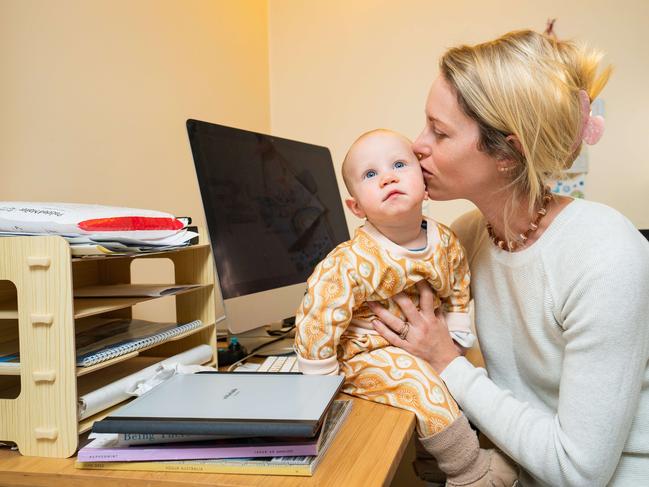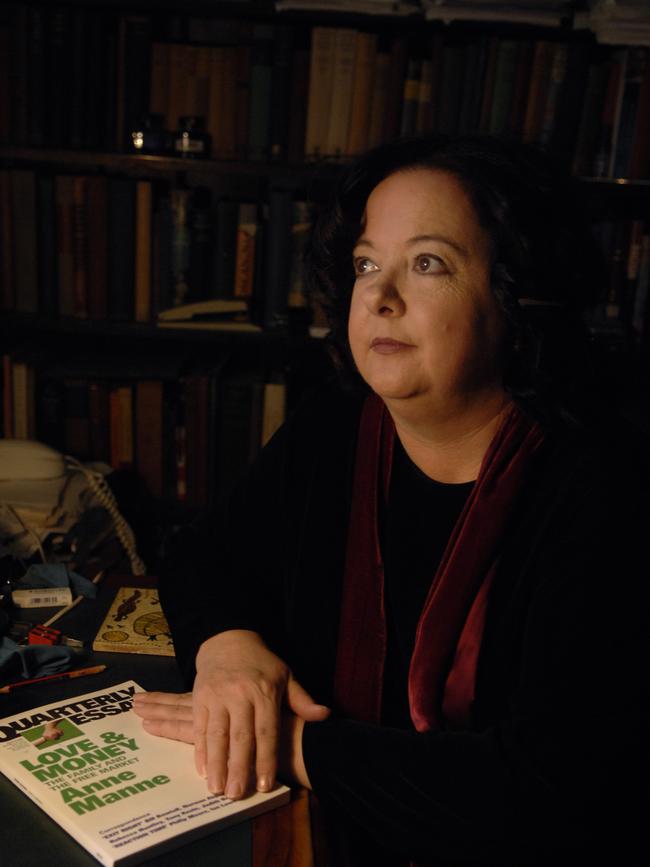Crunch time as new model needed to reward care economy workers
How can we value, reward and invest in those who provide the kind of care that money can’t buy?

In our household my husband and I both work. One of us is paid for our work and one of us isn’t, but there can be no doubt as we roll out of bed in the morning that we are both hitting the tools. If either of us doesn’t go to work the place falls apart and we all go hungry. If either of us stops working it hurts the economy. Together, we provide a future labour force and generate a currency that the shopkeepers accept.
The notion that the person who cares for the children during the day, educates them, converses and plays with them, all while cooking, cleaning and shopping for the household is “unproductive” is one of the greatest cons of our time. The concept could not be more ludicrous if we tried, and yet here I am, desperate to reimagine a future where my kids are valued for their caregiving contributions rather than made to feel like a drain on society while engaged in the work of caring for others.
Like most mothers, I know I’m operating at the upper limits of human functioning – pregnant for three of the past seven years, breastfeeding for six, sleep-deprived to the point that it’s a state of being. Psychoanalysing children, picking up more paid work, trying to be fun and constantly duelling with the pile of laundry. Statistics tell us women are hitting their limits when it comes to taking on more work, both paid and unpaid. In 2021 the Household, Income and Labour Dynamics in Australia (HILDA) Survey found almost 40 per cent of women felt chronically stressed, which impacted their mental and physical wellbeing.

We are learning that there is a point at which working more becomes less productive; that there is a limit to human capital. We steadily deplete the informal care economy which underpins the market economy and wonder why productivity is stagnating and birthrates are falling. We have to decide how much of our time to care for each other and ourselves is worth protecting, and conversely, how much paid work and economic growth is enough. Growth economies are exhausting reserves of endurance, benevolence and goodwill among the people who have typically provided unpaid care from which profits are made. Is it time for the government and the private sector to start seriously reinvesting in the unpaid care they rely on?
Carer credit schemes, a practice where primary carers earn money towards their retirement while in a caregiving role, are in place in wealthy, socially progressive nations such as Sweden and Germany but have repeatedly failed to gain traction in Australian politics. The Australian Human Rights Commission has been recommending the implementation of a carer credits scheme since 2011, and in 2023 the Senate Select Committee on Work and Care also recommended carer credits following their inquiry into better balancing work and care responsibilities. Carer credits are accumulated beyond the paid parental leave period but even calls to pay superannuation on paid parental leave – a measure estimated to cost the government $200 million a year – seem to have fallen on deaf ears.
Not only do carer credits present an opportunity to achieve a fairer society, close the superannuation gender gap in Australia and better support unpaid carers, there is also a strong economic case for this practice. In 2021 global financial consultancy firm Mercer modelled a superannuation contribution for Australian carers after the firm’s global pension index revealed many other countries contributed to social security for unpaid caregivers. Senior partner Dr David Knox said an investment in superannuation equated to a saving on future aged pension spending. “This is a way of making sure that people who take time out of the workforce to care for young children or ageing parents, predominantly women, have a more dignified retirement than they would otherwise have,” he said.
‘Most people like the idea of care. They like the idea of “mothers” and “family” and “freedom of choice” and “equality”, but are they willing to pay for these things?’
Knox said falling birthrates would only increase the pressure on governments to better support unpaid contributions in the future. “Superannuation is paid on annual leave, it’s paid on long service leave, it should also be paid on parental leave and this is an extension of that,” he explains. “Yes, it is a government expenditure, but we’re supporting those who are caring for young children and having young children means you’re supporting the next generation of taxpayers in the society and that’s what we need. We’re an ageing population and the Australian birthrate is well below what we call replacement rate.”
The unwillingness to contribute to a caregiver’s pension is emblematic of a wider issue where the reluctance to support the unpaid care economy is not for lack of sound policies to implement, but a lack of public support and political will. It’s one thing to design policies that resource the unpaid care economy, it’s another thing entirely to convince people that this sector is worth resourcing. That the unpaid contribution is just as vital as the paid. That a woman’s time is as valuable as any man’s.
The struggle to value and retain the natural environment has experienced similar public policy hurdles because people expect it to be free. But carbon credits have brought the value of the environment out of the abstract and into the marketplace. Pricing carbon has allowed many landholders to access a form of compensation for retaining biodiversity and natural capital, rather than personally shouldering the opportunity cost of leaving vegetation in the ground. The idea of earning “credits” in exchange for cultivating a rather intangible but extremely valuable resource seems to be slightly more palatable than direct subsidies.
ANU Honorary Associate Professor Julie Smith has sought to encourage investment in the unpaid care sector by creating algorithms that enable governments to measure carbon emissions avoided by breastfeeding. Professor Smith’s “Green Feeding Tool” is designed to help governments justify policies that facilitate extended breastfeeding, like better paid parental leave, as contributing to long-term emissions reductions. Professor Smith has also extensively modelled the public health cost savings of improving breastfeeding rates. Rather than reinventing the policy, she’s finding new ways to demonstrate and measure the value of that policy in a tangible sense.

Professor Smith is also an economic historian and has dedicated much of her professional life to developing innovative ways to resource the unpaid care economy. “We’re in this time in history where we haven’t worked out how we’re going to sustain our workforce, we’ve reached the limit, it’s crunch time for our care economy,” she says. “We have very gendered and blinkered ideologies driving policies that don’t see unpaid work as work. We have to reframe supports as investments in the unpaid economy. It’s the underpinnings of the market because it’s producing your labour force so why wouldn’t you invest in it?”
Social philosopher Anne Manne, who has written about the value of the care economy for decades, envisions a new paradigm where society values unpaid contributions, such as care and volunteering, as equally important as paid contributions.

“It needs to be a radical shift where we really re-evaluate what it is we value in our lives,” she told a Centre for Public Christianity podcast in June 2023. “We don’t have enough of a sense of honour in care work, there’s an intricacy and an intimacy about giving care, a reading of another person where they are at that moment. It’s like emotional braille, feeling your way to where they are and a kind of alchemy if you respond to them in the right way. It’s certainly true of a child but it’s true of someone with dementia as well.”
Manne argues extensively for policies that directly remunerate unpaid care work in real time. She flips the narrative of carers as welfare bludgers and instead identifies people who benefit from care responsibilities but don’t perform that work themselves as “care bludgers”.
Most people like the idea of care. They like the idea of “mothers” and “family” and “freedom of choice” and “equality”, but are they willing to pay for these things? Assigning true value to care work will seem expensive in the short term, because we are accustomed to women providing that work for free and at their personal disadvantage. Our economy and life as we know it has relied on the exploitation of unpaid carers for so long that resistance is inevitable – we simply lack the imagination to see any other way.
Scarcity of time and resources to provide informal care will increasingly affect the wellbeing of all members of society. The financial returns on quality care and improved wellbeing are indisputable – happy, healthy people are more productive – but these returns can be far slower to materialise and more difficult to measure than the financial returns on women simply taking on more paid work. We continue to prioritise short-term economic gains, but when mothers are overburdened the flow-on effects on public health are profound.
If the care contribution continues to come with significant financial and professional penalty, families will be increasingly unable to provide this contribution, and without policies that resource unpaid care, caring will slowly but surely be outsourced to the market at both ends of life. As American author Robert Kuttner writes: “When everything is for sale, the person who volunteers time, who helps a stranger, who agrees to work for a modest wage out of commitment to the public good … who forgoes the opportunity to free ride, begins to feel like a sucker.”
It will require creativity, as well as bravery, to bridge political divides and properly investigate ways to retain the kind of care that money can’t buy.




To join the conversation, please log in. Don't have an account? Register
Join the conversation, you are commenting as Logout